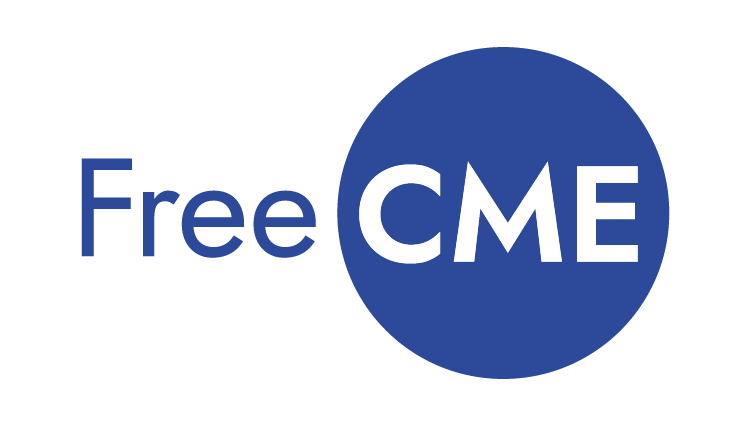
Conversations Around Brain Health: Reframing Expectations for Healthcare Providers, Patients, and Caregivers
Released On
December 19, 2024
Expires On
December 19, 2025
Media Type
Internet
Completion Time
150 minutes
Specialty
Geriatric Medicine, Hospitalist, Neurology, Obstetrics & Gynecology, Primary Care, Psychiatry
Topic(s)
Alzheimer's, Brain Health, Dementia, Geriatric Medicine
Provided by the Academy for Continued Healthcare Learning (ACHL).
This program is supported by an educational grant from Lilly .
Credit Available
- Physicians - maximum of 2.5 AMA PRA Category 1 Credits™
Target Audience
This activity is designed for primary care providers, general neurologists, OB/GYNs, psychiatrists, and the multidisciplinary team who encounter patients with or at-risk of mild cognitive impairment, dementia, or Alzheimer’s Disease.
Program Overview
Clinicians often fail to initiate conversations with patients and/or caregivers around brain health, frequently due to discomfort with the topic and the incorrect perception that there is little benefit to diagnosing Alzheimer’s disease (AD) early. However, the failure to detect early signs of cognitive decline and diagnose appropriately prevents patients from gaining access to treatment and support services and deprives patients and caregivers of the opportunity to plan for future healthcare needs. Beyond diagnosis, it may be even more beneficial to address brain health before cognitive decline begins. Recommendations now call for targeting modifiable risk factors to slow or even prevent cognitive decline and dementia. Key to identifying and delaying cognitive decline calls for integrated and system-driven screening and communication practices to effectively solicit patient- or caregiver-reported feedback for translation into actionable management practices. Unfortunately, although guidelines prioritize patient-centered care using communication systems to facilitate the delivery of care, they fail to explicitly describe what these communication systems are or elucidate how shared decision-making should be approached in persons “with varying cognitive impairment.”
To overcome these challenges, this learning hub offers a mix of easy-to-introduce practical strategies and communication frameworks supported by the latest evidence. Learners can easily navigate the learning hub and pick and choose among the wide array of education modalities and resources, including animated whiteboards; a downloadable slide deck and facilitation guide to support peer-to-peer learning; patient education resources with practical guidance for their use; and representative processes and workflows for easy integration into routine clinical practice.
Learning Objectives
Upon completion of this activity, learners will be able to:
- Implement evidence-based strategies for managing modifiable risk factors associated with cognitive decline and Alzheimer's disease (AD)
- Outline the clinical continuum of cognitive decline and AD
- Develop patient-centered communication plans for discussing brain health and cognitive concerns with patients and caregivers
Faculty
Malaz Boustani, MD, MPH
Richard M Fairbanks Professor of Aging Research
Indiana University School of Medicine
Geriatrician and Director of Care Innovation
Eskenazi Health
Indianapolis, IN
Andrew E. Budson, MD
Professor of Neurology
Boston University School of Medicine
Boston, MA
Diana Summanwar, MD
Assistant Professor
Department of Family Medicine
Indiana University School of Medicine
Indianapolis, IN
Accreditation Statement

The Academy for Continued Healthcare Learning is accredited by the Accreditation Council for Continuing Medical Education (ACCME) to provide continuing medical education for physicians.
Credit Designation
The Academy for Continued Healthcare Learning designates this enduring material for a maximum of 2.5 AMA PRA Category 1 Credits™. Physicians should claim only the credit commensurate with the extent of their participation in the activity.
Physician assistants, nurse practitioners, and nurses may participate in this educational activity and earn a certificate of completion as AAPA, AANP, and ANCC accept AMA PRA Category 1 Credits™ through their reciprocity agreements.
Disclosures of Conflicts of Interest
The Academy for Continued Healthcare Learning (ACHL) requires that the faculty participating in an accredited continuing education activity disclose all affiliations or other financial relationships within 24 months (1) with the manufacturers of any commercial product(s) and/or provider(s) of commercial services discussed in an educational presentation and (2) with all ineligible companies. All relevant financial relationships have been mitigated prior to this activity.
The following financial relationships have been provided:
Malaz Boustani, MD, MPH
Consultant: Eisai, Genentech, Lilly, Merck
Speakers Bureau: Eisai, Lilly
Andrew E. Budson, MD
Consultant: Abbvie, Lilly
Grant Support: Vox Neuro
Speakers Bureau: Lilly
Diana Summanwar, MD
Consultant (occasional): Roche
ACHL staff members and others involved with the planning, development, and review of the content for this activity have no relevant affiliations or financial relationships to disclose.
Method of Participation
To receive credit, learners are required to complete the pretest, view the online activity, and complete the posttest and evaluation. To receive credit, 80% must be achieved on the posttest. A certificate will be immediately available. There is no fee to participate in the activity or for the generation of the certificate.
Disclaimer
The content for this activity was developed independently of any ineligible company. All materials are included with permission. The opinions expressed are those of the faculty and are not to be construed as those of the publisher or grantor(s).
This educational activity was planned and produced in accordance with the ACCME Standards for Integrity and Independence in Accredited Continuing Education. Recommendations involving clinical medicine in a continuing medical education (CME/CE) activity must be based on evidence that is accepted within the profession of medicine as adequate justification for their indications and contraindications in the care of patients. All scientific research referred to, reported, or used in CME/CE in support or justification of a patient care recommendation must conform to the generally accepted standards of experimental design, data collection, and analysis.
This CME/CE activity might describe the off-label, investigational, or experimental use of medications and/or devices that may exceed their FDA-approved labeling. Physicians should consult the current manufacturers’ prescribing information for these products. ACHL requires the speaker to disclose that a product is not labeled for use under discussion.
Discussion of scientific information on unapproved uses (SIUU), off-label, investigational, or experimental drug/device use: Tests for blood-based biomarkers associated with Alzheimer’s disease are not approved by the FDA.
Contact Information
For questions, contact Laurie Novoryta at [email protected].
